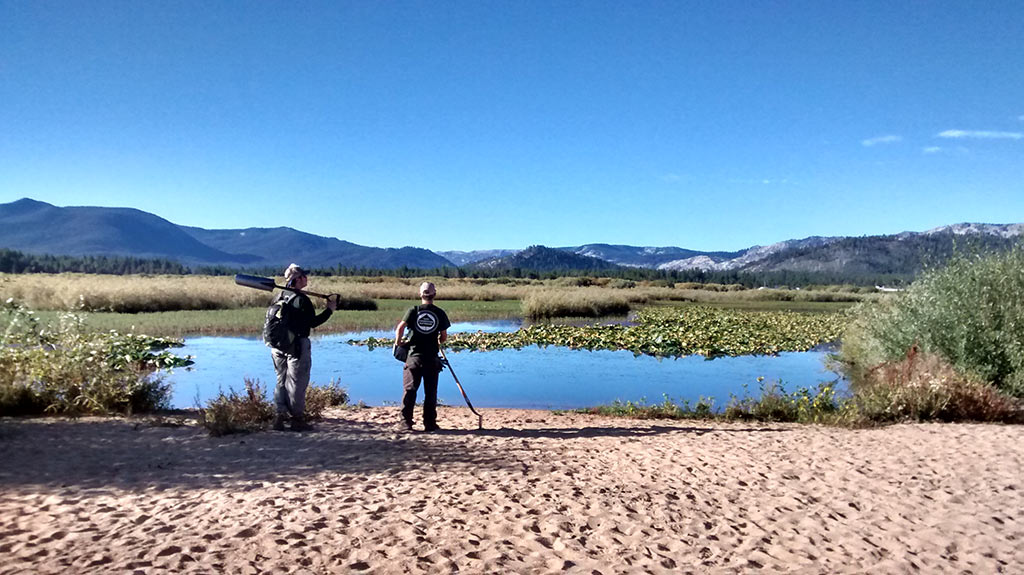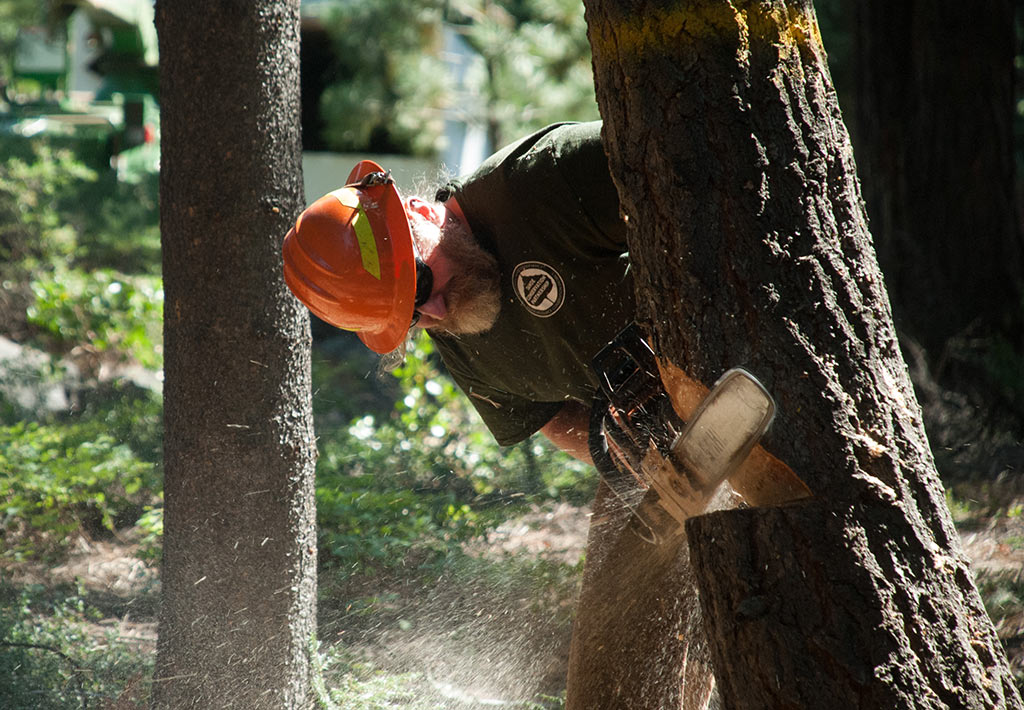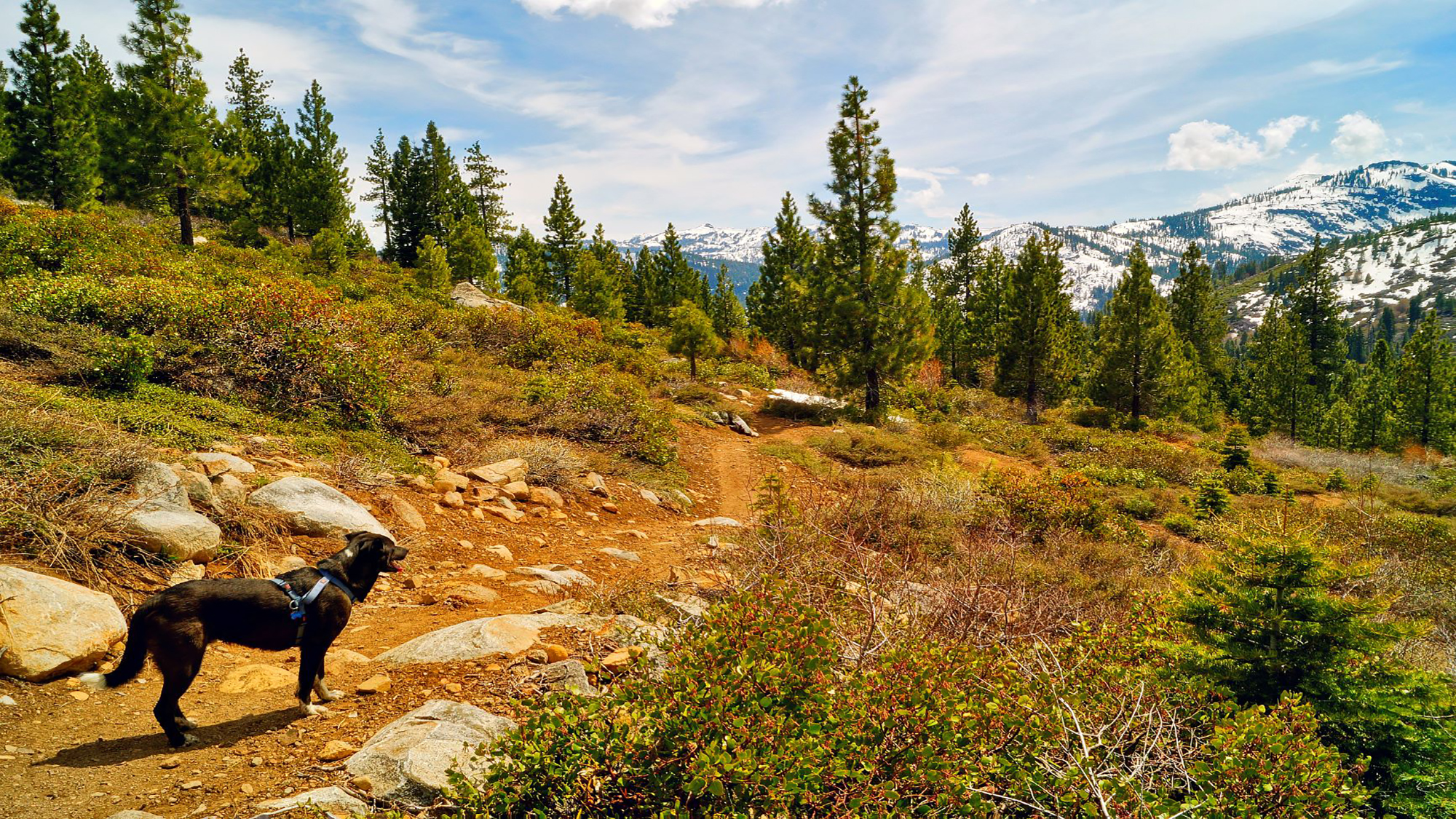Forestry, Land Management & Restoration Crews
Tahoe RCDs forestry, land management and restoration crews assist with protection, restoration, maintenance, and monitoring of California Tahoe Conservancy and Tahoe RCD managed lands. The Conservancy manages approximately 6,600 acres or 4,700 parcels on the California side of the Lake Tahoe Basin. Tahoe RCD manages approximately 206 acres in South Lake Tahoe. Projects include forest thinning, erosion control, invasive species management, trail construction/maintenance, revegetation, and wildlife/vegetation monitoring. Tahoe RCD has been providing these services to the Conservancy for over 30 years and made the partnership official in 2011 with a Joint Powers Agreement.
Forestry
Forest Health and Fuels Reduction projects are implemented to manage forest resources consistent with the need to enhance resource health, preserve water quality, enhance wildlife habitat, and provide public safety and property protection. Tahoe RCD uses a variety of management methods including removal of dead and dying trees, thinning of overstocked forest stands, protection of tree species of limited local occurrence to enhance species diversity, re-introduction of fire into the ecosystem through prescribed burning, reforestation, site restoration, and enhancement of riparian habitats, including reduction of conifer encroachment into meadows and quaking aspen stands.
Wildfire suppression, historical logging, insect outbreaks, and drought in the Lake Tahoe Basin have left our forests in a vulnerable state. In order to create a healthy and fire-resistant forest ecosystem, active management is required. Tahoe RCD crews implement forest thinning projects in priority areas to promote forest health and protect our communities from wildfire.
Land Management & Restoration
The Tahoe Conservation Partnership is an integral part of managing the California Tahoe Conservancy owned properties, ranging from small urban parcels to large recreation and natural resource havens such as Upper Truckee Marsh. Restoration projects are implemented on urban lots for a variety of reasons, including to improve wildlife habitat, restore forest health and enhance soil and vegetation for water quality. Typical projects on urban lots
The removal of asphalt and building remnants, erosion control, soil stabilization, re-vegetation and reforestation of disturbed or barren areas, and barrier construction to prevent unauthorized uses. Other land management services include:

Noxious Weed Management
Noxious weeds are non-native, invasive plants that tend to degrade the natural, recreational, and economic value of the land. The Tahoe Conservation Partnership treats priority populations of noxious weeds to prevent them from establishing. Weed populations are removed by hand and monitored to ensure the population does not re-establish.

Hazard Tree Removal
Tree mortality is an ongoing issue within the Lake Tahoe Basin. With much of California Tahoe Conservancy’s property adjacent to populated areas, dead and dying trees can threaten life and property. This problem has been exasperated in recent drought years. The Tahoe Conservation Partnership crews remove these trees to make our neighborhoods safer and protect personal property.

Tahoe Rim Trail Association Assistance
The Tahoe Conservation Partnership crews work in conjunction with the California Tahoe Conservancy and the Tahoe Rim Trail Association to assist with improvements and maintenance of the Van Sickle Bi-State Park trails network.
